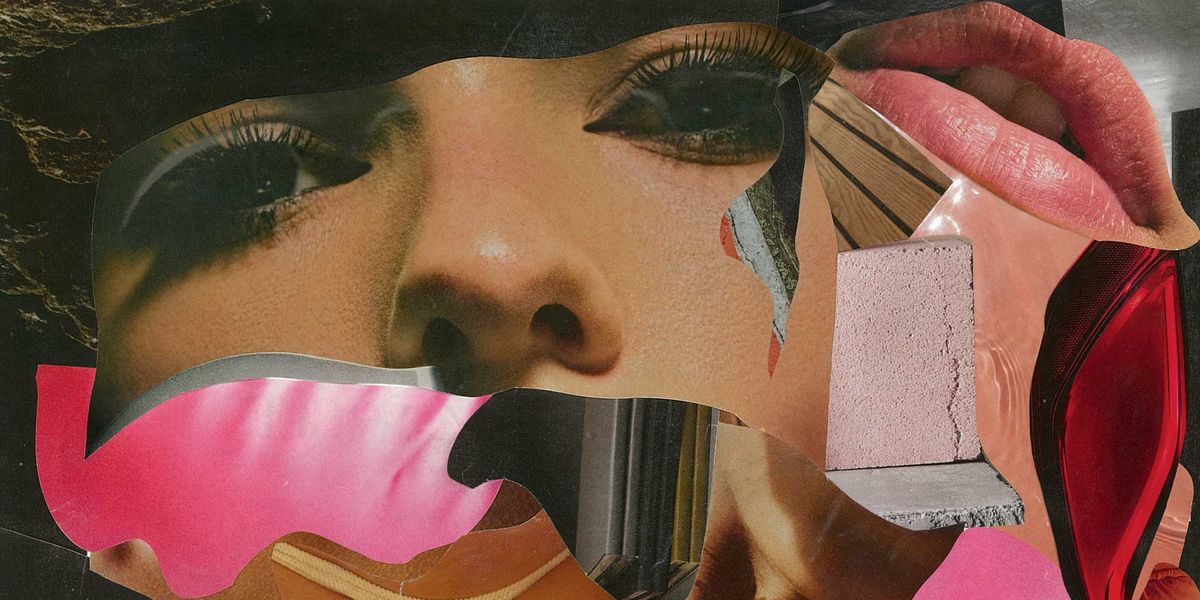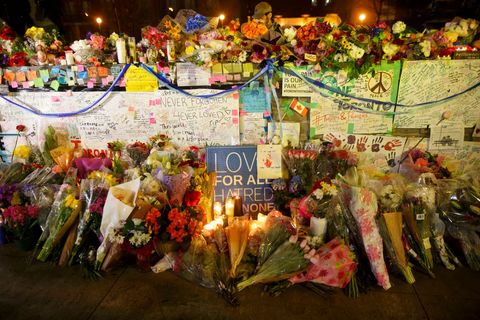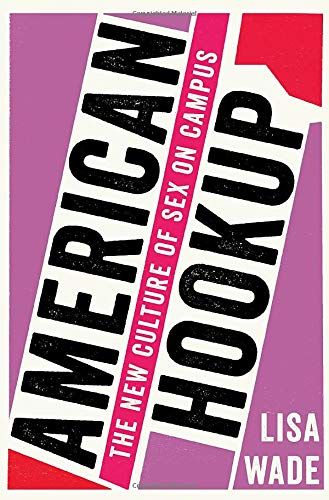Products You May Like
Doreen* had been bullied since middle school because of her looks. People called her fat and ugly, at what felt like a ceaseless pace. She didn’t feel sexually or romantically desired. Boys didn’t treat her the way they did her more attractive friends. Having a sex-positive attitude was even tougher growing up in a religious West African immigrant family, where she was taught that sex was a sin outside of marriage. Neither her sister—the “pretty one”—nor her mom understood what she was going through. “I didn’t have any type of self-esteem or confidence,” she recalls. The world “taught me that my worth and my value as a female, as a young lady, was connected directly to what I looked like.”
In her senior year of high school, Doreen tried to put herself out there. She experimented with makeup, wore flattering clothes, and debuted cute hairstyles. But she got no closer to the loving, respectful relationship she wanted. She dredged up the courage to tell a boy she liked him, but then she overheard him call her “ugly” to his friends. Around the same time, another guy she knew proposed a friends-with-benefits arrangement. She agreed, thinking it might lead to a genuine connection. It didn’t. Instead, it made her feel “disgusting, like I wanted to rub my skin off and jump into a brand-new body.”
After they fooled around, he expressed his annoyance via text that they hadn’t gone far enough. When they were in public, he refused to kiss her or hold her hand, even though he flaunted his other girlfriends on Instagram. “It felt like I was being used,” Doreen says. “It made me feel even worse” than not dating at all, because according to him, “I’m not good enough to be in a relationship, but I am good enough just for something sexual.” She’s 20 now, a couple of years older, but that remains the only time she’s hooked up with someone.
Shortly after this experience, Doreen found the “femcels,” a community of women online who describe themselves as unable to have sexual or romantic relationships as a result of a toxic blend of misogyny and impossible beauty standards. It’s a female take on male “incels,” so-called “involuntary celibates” who, in general, feel entitled to sex with women—and resentful if they don’t get it. The term made headlines in 2018 when Alek Minassian wrote “The Incel Rebellion has already begun!” on Facebook, minutes before driving a van into a group of pedestrians in Toronto, killing 10 and injuring 16.
In his post, Minassian also hailed self-identified incel Elliot Rodger—who killed 6 people and injured 14 before fatally shooting himself near the University of California, Santa Barbara—as “the Supreme Gentleman.” But the termincel was actually coined in 1997 by a woman known as Alana, who created the Involuntary Celibate Project as a source of comfort and support for lonely, hurting people. Alana has since distanced herself from the community, but 24 years later, femcels have taken her concept full circle, and created a space that honors a female perspective.
Doreen strongly identified with what femcels were writing on Reddit threads and other forums: that society systematically deprives unattractive women of love and respect; that the only way to “ascend” is through dramatic alterations to one’s looks; that pretty people just have it easier. Raw, wistful accounts on these threads often reveal deep loneliness. “Seeing young beautiful women still makes me want to die,” wrote one user called vcardthrow2 on a femcel site called ThePinkPill. It feels like “a rebuke from God of your own happiness, because you understand what’s possible, what sort of destiny he offers better people.”
The femcel and incel communities appear to not get along, in part because the latter doesn’t believe the former can exist. They may look at women like Doreen and think, “See? Someone was willing to have sex with you.” All women, many incels say, have the choice to be sexually active or not; so-called “femcels” are just being too picky. While most women would probably not identify as involuntarily celibate, many can relate to the frustrating expectation that they should prefer awful sex to no sex at all. And they might even recognize their worst dates in the observations of a PinkPill user named Feelinveryblue: “A woman can get sex if she has next to no standards, doesn’t care about whether or not she has an orgasm, and doesn’t mind being used as a human fleshlight.”
Femcels might struggle more than most to have fulfilling sexual and romantic relationships, but their no-holds-barred assessments of the sexual marketplace reveal a lot about the misogyny-laden obstacles to female pleasure. Many femcels would say that sleeping with men who disrespect them or abuse them makes this “choice” akin to choosing between starving and eating poisoned food. “Being the person a man is willing to ejaculate into is like being a toilet. It can be a very dehumanizing experience,” says Giga, a femcel in her twenties. Giga created ThePinkPill after the Trufemcels subreddit was banned for reportedly violating Reddit’s rule against promoting hate (though some blame other factors, from vengeful incels to Redditors who flagged self-harm rhetoric).
The very nature of having sex as a straight woman leaves her somewhat vulnerable. Part of it is physical; the bodily surrender of being penetrated is just not required for heterosexual men. And, of course, the other part is cultural: Sex is often on terms set by men, many of whom are taught to express their aggression, power, or contempt for women—especially those deemed “undesirable”—through sex. Sociologist Lisa Wade, PhD, author of American Hookup: The New Culture of Sex on Campus, explains that one of the ways young men navigate the “hostile environment” of sexist hookup culture is to “treat women badly if they know they’re low status,” whether because of class, race, attractiveness, or body size. Wade’s research shows these women are more likely to encounter rude or abusive treatment from men. Giga concurs: “Women take much higher risks when it comes to sex. Safety is a consideration that cannot be ignored.”
All of this potential risk is at war with most women’s genuine desires for sex, affection, and love, no matter what status men assign to them. “I’ve seen some risky behavior taken by women in this community, because being lonely and wanting to be desired can take a toll,” Giga says. Even if one guy deigns to have sex with a woman he deems unattractive, “ask yourself what people-pleasing behavior from an inexperienced woman looks like, sexually speaking.”
At minimum, it looks like taking less than you want while tamping down the voice in your head that demands better—a painful experience that a lot of women can relate to regardless of their looks. “Students will say, ‘I would love to be having sex, [but] hooking up seems so uncomfortable, so cold, so fraught with disappointment and the potential for frustration and trauma, that it just doesn’t seem worth it to me,’ ” Wade says. It’s one factor researchers point to when trying to explain the recent dip in young people’s sexual activity: Women feel more empowered to say no to sex that doesn’t meet their terms or expectations.
For many femcels, not accepting bad treatment is an act of self-love. Despite the sadness and anger they may feel, many operate on the premise that they are entitled to respect. “I deserve to experience that for myself, and I deserve to know how that feels,” Doreen says. “I’ve really been trying to come into loving myself this year, but it’s hard to do that when you’ve never really been desired in that way by anybody else.”
*Name has been changed.
This article appears in the September 2021 issue of ELLE.
This content is created and maintained by a third party, and imported onto this page to help users provide their email addresses. You may be able to find more information about this and similar content at piano.io


